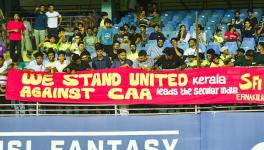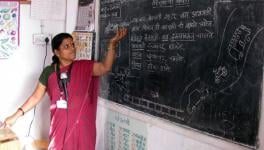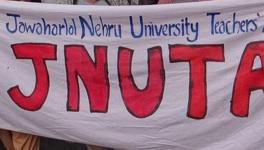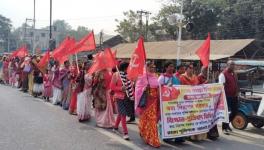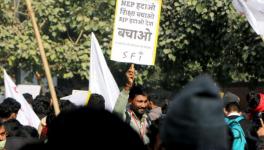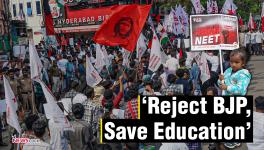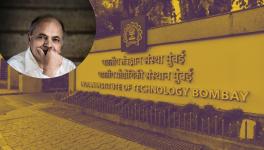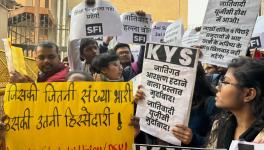IIT Bombay's Failure to Create an Inclusive Campus the Reason Behind Darshan Solanki's Death, Says Family
Darshan Solanki, a B.Tech student at the Indian Institute of Technology (Bombay), died by alleged suicide on February 12 at the campus. Amid the allegations of caste discrimination, the Mumbai Police, in its investigation, has not found any suicide letter. The family members alleged that Solanki complained about a change in friends' behaviour after they learned about his SC (Scheduled Castes) background. In an interview with NDTV, Darshan Solanki's sister Jhanvi Solanki alleged that he was abused for getting tuition fee-free education.
The death at the campus seems to have sent shockwaves among the students who, too, alleged that Darshan Solanki was driven to end his life after incessant rattling over his identity.
Responding to the allegations of caste discrimination, IIT Bombay director Professor Subhas Chaudhury said that it would conduct its investigation and take further action. However, student organisations active at the campus allege that the administration of IIT Bombay has not been sincere in creating a conducive environment for students from marginalised backgrounds to learn and grow. Moreover, it employed a casteist mindset in teacher recruitment, where it hardly selected any teachers from the SC/ST communities for most departments.
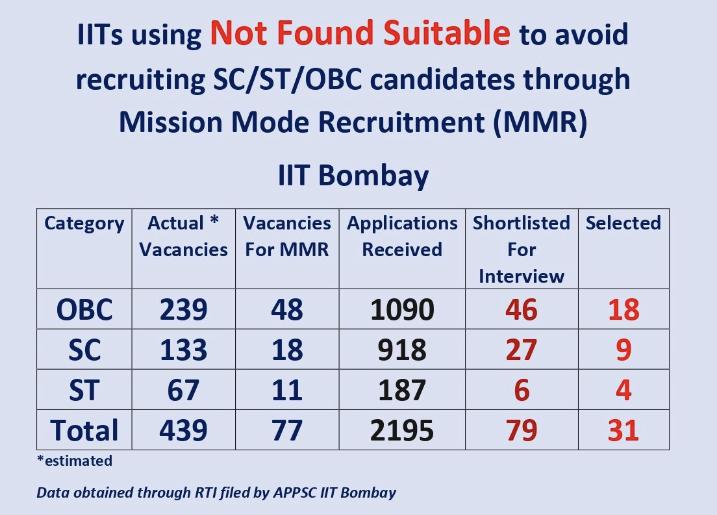
A student affiliated with Ambedkar Phule Periyar Study Circle at the institute, requesting anonymity, told NewsClick that the institute knows about caste discrimination practices at the campus, which is evident from the fact that the SC/ST cell surveyed students and they gave testimonies and other data.
The findings have yet to be made public.
"IITs are known for their curriculum and sheer pressure to cope. There are mental health concerns too. Yet they did not realise that dalit students, too, needed support. We asked IIT Bombay Director to look into it. He did not hear. Then we approached the National Commission of Scheduled Tribes (NCST), which asked about it from him. Had he taken corrective measures, Darshan Solanki would have been alive."
He added that the isolation of dalit students becomes more acute when they find that no teachers are here to listen to their grievances, let alone sympathise.
"We have found that IITs have been flouting reservation norms for decades by not recruiting SC/ST teachers. Let me cite the example of this institute alone. After the government's diktat for recruitment on mission mode, it used the 'not found suitable' excuse to deny them seats. In the OBC (Other Backward Classes) category, there were 239 total vacancies. Under mission mode recruitment, 48 seats were advertised, for which 1096 applications were received. Yet 46 were shortlisted for interview, and only 18 were selected. In the SC category, the total vacancies were 133. 18 seats were earmarked for MMR. 918 applications received, 27 shortlisted and nine selected. A similar pattern can also be seen in the ST category where four were selected against 11 seats."
The information was furnished to the circle through the Right to Information.
In a press statement, the group alleged that Darshan Solanki was deprived of dignity in the condolence meeting by the administration.
It said, "As the condolence meeting organised by admin turned out to be merely a symbolic gesture implicating nothing but a hollow show-off, death is again normalised by the 'premier' institute. The director spoke his two words and resorted to petty gestures of taking the mic away to prevent students from speaking. He walked out of the condolence meeting as students were coming up to speak for Darshan Solanki."
The statement further mentioned, "The institutional silence through murder was accentuated when the director shut students up in a meeting and called for the students to grieve. According to him, there is a place and time for students to grieve and raise their issues, and then the director would send a mail to the students to inform them when that would be. What was more outrageous was that classes were not suspended while the condolence meeting was going on. When students asked the director to apologise for the insensitivity of letting classes continue, he just walked out on them."
It added, "It is not just apathy, but a monumental failure on the part of such administrations of higher education institutions, to have a clear understanding of their own functioning. It's their "lack of competence" and "lack of merit", to put it in their own language, to run institutes with such diverse populations. These administrations have much to learn. But before that, they need to come out of their blissful ignorance and acknowledge the inadequacies in their knowledge system."
A representative of Dastak, a progressive cultural forum at the institute, who wishes to be anonymous, told NewsClick that the students from marginalised sections had to fight a long battle to get a body like SC/ST Cell, which would look into the complaints of students. However, the body has no mandate as its powers and scope of work are yet to be defined.
"Student groups pressed the administration for the formation of an SC/ST cell after we witnessed the tragic death of Aniket Ambhore in 2014. He had also alleged discrimination at the campus. Even though it was formed, the mandate and powers are very vague. It did not have a working office for long. Currently, the problem lies in its approach. Any cell should have outreach to students where it could comfort you for mental health concerns, not vice-versa. When this tragic suicide happened at the campus, the cell did not have an inkling that this student hailed from a dalit background," He said.
He further said that the institute had set up a student welfare centre to provide counselling to students to cope with academic pressure. The centre was run by a lady who had openly expressed anti-reservation opinions on Facebook.
"How will she generate confidence in dalit and bahujan students to come to her to seek remedy? Even today, this centre has no SC/ST counsellors."
He added that there had been hardly any exercise to educate students from unreserved communities about reservations being a measure for social upliftment, not a poverty alleviation tool.
"The students who qualify for IIT-JEE face stiff competition after getting admission too, where they have to get credits to show in their CV for placements. The groups running campaigns for sensitisation on the question of caste have largely been limited to humanities and social sciences. Their outreach to common engineering students is very limited, and it is the spectrum where most discrimination cases are reported. The curriculum teaching too has been designed to boost lop-sided meritocracy where your social status does not count."
Reacting to the developments, Mayukh Biswas, Secretary, Student Federation of India, told NewsClick that the grave concern that has been in discussion for the past few years is the rising number of student suicides from various Higher Education Institutions, including IITs.
"Death of students, staff, and faculty by suicide has precipitated unprecedented student mobilisations on several IIT campuses where such mobilisations were unheard of in the past under the guise of being apolitical. However, student deaths by suicide are not endemic to the IIT system but exist as a grave issue in other higher education institutions."
According to the data tabled in Parliament by the Minister of Education, there were 122 student deaths by suicide between 2014 and 2021. IITs and NITs accounted for more than half of student deaths. The category-wise data also points towards a larger proportion of deaths of students from socially and economically backward communities.
Biswas said that the respective administrative bodies and the BJP-ruled (Bharatiya Janata Party) government have largely been dismissive of these realities. These murders follow a pattern that is an extension of their politics of exclusion, which the right-wing government and their allies refuse to see or acknowledge.
"With the BJP government hell-bent on a path of full privatisation to appease their corporate overlords and HEIs remaining upper caste-dominated spaces, knowledge continues to be gatekept from and inaccessible to wide sections of society. Education in these spaces entrenches pre-existing inequalities which are directly opposed to its function of enabling social equalising. Introducing exclusionary NEP (New Education Policy) will further worsen the situation, and our public universities are now fast transforming into regressive, exclusionary spaces and sites of everyday oppression and discrimination."
Get the latest reports & analysis with people's perspective on Protests, movements & deep analytical videos, discussions of the current affairs in your Telegram app. Subscribe to NewsClick's Telegram channel & get Real-Time updates on stories, as they get published on our website.










